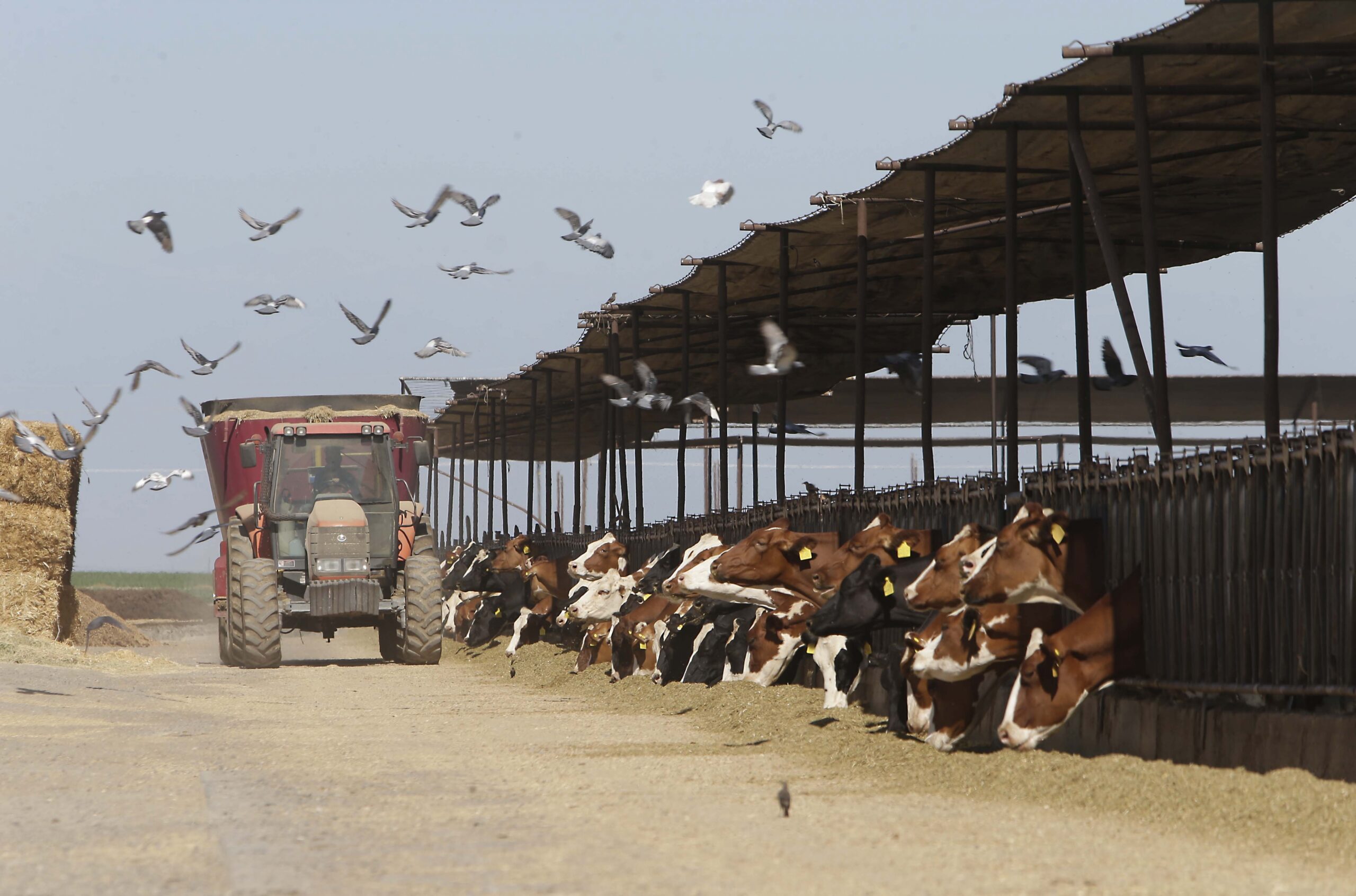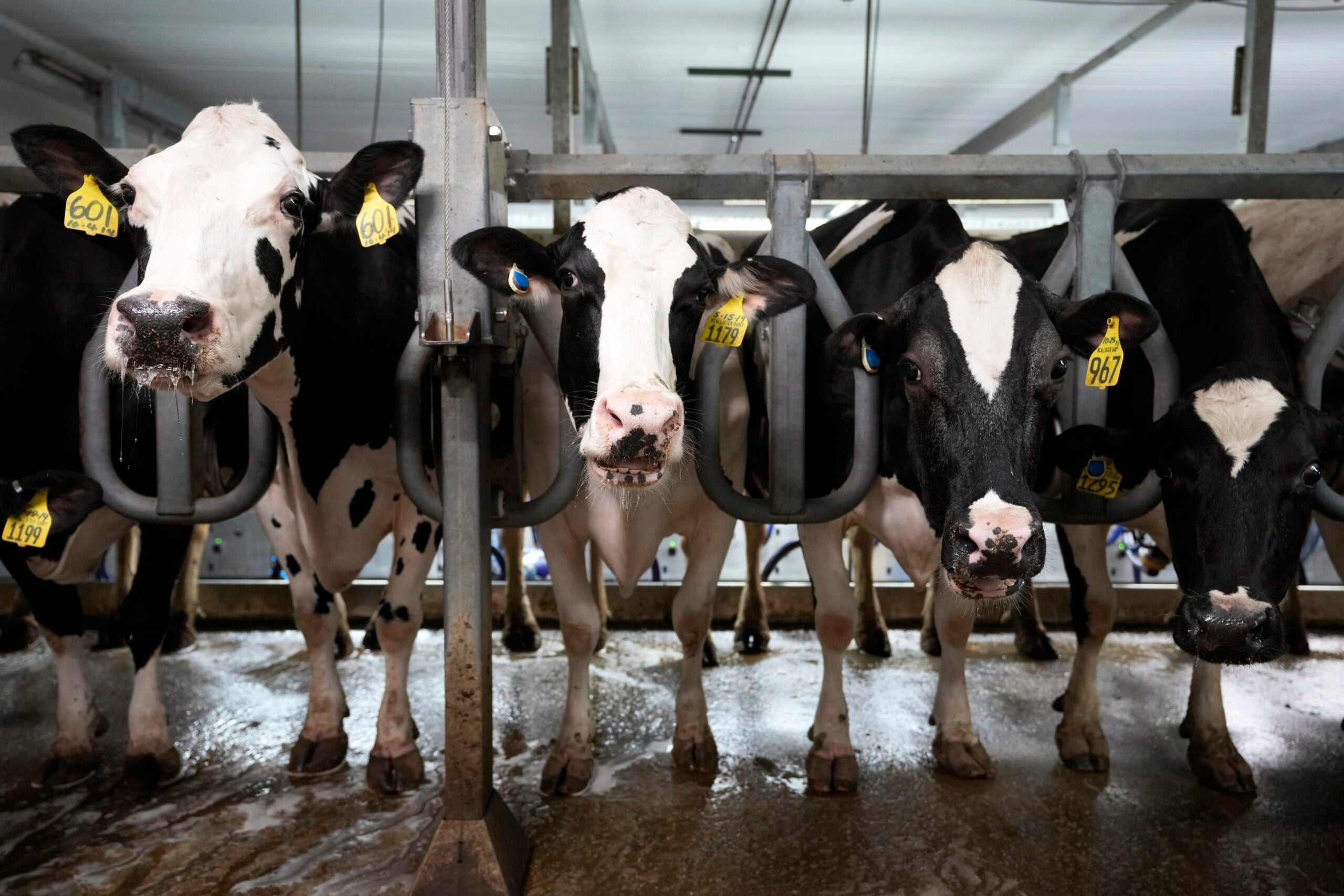More than a dozen citizen and environmental groups are suing the Environmental Protection Agency to force better regulation of large farms to protect water quality.
Food & Water Watch, along with a dozen other groups, filed a lawsuit on Friday in federal court. The legal challenge follows the EPA’s rejection of two petitions that had sought revisions to the agency’s rules for concentrated animal feeding operations or CAFOs.
Midwest Environmental Advocates and Kewaunee CARES, both based in Wisconsin, were among groups that filed the Friday lawsuit as a result of a 2017 petition. Voskuil, a staff attorney for Midwest Environmental Advocates, said they wanted the EPA to change CAFO regulations to more closely follow the federal Clean Water Act and better protect water.
News with a little more humanity
WPR’s “Wisconsin Today” newsletter keeps you connected to the state you love without feeling overwhelmed. No paywall. No agenda. No corporate filter.
“The overall petition was asking the Environmental Protection Agency to address some loopholes and fix the system overall, so these industrial agricultural operations would be better regulated and contribute less to water contamination across the United States,” Voskuil said.
In its petition, the groups said many CAFOs actually discharge waste, and it would be “appropriate” for them obtain national permits to regulate those releases. Currently, federal law only requires those known to discharge waste to obtain permits, although states like Wisconsin have gone beyond federal requirements. The groups argued that federal appeals court rulings in 2005 and 2011 undermined the agency’s efforts to require large farms to obtain permits, placing the burden on citizens and regulators to catch polluters.
In a statement, Food & Water Watch Legal Director Tarah Heinzen accused the EPA of facilitating a “clean water crisis” by failing to take action now.
“Factory farms are polluters by design — true environmental protection requires a willingness by EPA to confront this industry head on,” Heinzen said. “It is high time EPA addressed the crisis it has spent decades enabling.”
Groups also want the agency to revise its interpretation of an agricultural stormwater exemption. Any manure or waste runoff tied to rain or snow are currently exempt from national permit requirements. They say that makes it “virtually impossible” to tell if a release stems from storm events or improper manure management.
In its Aug. 15 response to groups, the EPA said it will study its regulations of CAFOs. The agency also plans to form a committee to hear from farmers, states and researchers about the “most effective and efficient ways” to cut back on pollution from large livestock operations. The EPA said it would decide whether to revise its regulations after conducting the study and reviewing recommendations from the committee. The committee is anticipated to meet over the next 12 to 18 months.
Tim Trotter, chief executive officer of the Dairy Business Association, said in a statement the lawsuit would seek to dramatically change the regulatory framework for large dairies in Wisconsin. He added that farmers currently operate under strict environmental regulations.
“Our dairy farmers have always focused on sensible, scientifically grounded and sustainable solutions to environmental challenges. That is what creates the most effective outcomes for the environment, our neighbors and our farm families’ livelihoods,” Trotter said. “We welcome the EPA’s approach of bringing farmers, researchers, community groups and other stakeholders together to take a holistic view of this complex issue.”
Voskuil said it’s unclear how any change at the federal level may affect Wisconsin.
Kim Bremmer, executive director with Venture Dairy Cooperative, said she doesn’t think the lawsuit will have a huge impact on Wisconsin CAFOs because they’re regulated by the Wisconsin Department of Natural Resources under the state’s permitting program. Even so, she said the lawsuit reinforces the notion that CAFOs pollute.
“We don’t believe agencies like the EPA or the DNR have the authority to assume pollution on CAFOs,” Bremmer said.
Bremmer added she’s pleased the EPA will form a committee to make recommendations, saying she feels there’s room for common ground.
“I think it could bring some really great solutions and even some that maybe a lot of people aren’t aware of,” Bremmer said. “I always believe that farmers are the solution.”
The federal lawsuit comes as Venture Dairy Cooperative and the Wisconsin Dairy Alliance are challenging requirements that CAFOs obtain wastewater permits under Wisconsin’s program. In May, the WMC Litigation Center filed a lawsuit in Calumet County Circuit Court on behalf of the farm advocacy groups.
The groups argue the DNR is unlawfully requiring the state’s 335 CAFOs to obtain permits. They’ve pointed to the 2005 and 2011 federal appeals court rulings. They argue those decisions found the Clean Water Act doesn’t allow the EPA to require CAFOs to obtain wastewater discharge permits until they actually release waste into waterways. They contend state statutes require the DNR to follow federal law in that area.
Environmental and farm groups recently filed a motion to intervene in that lawsuit. Midwest Environmental Advocates is representing the Wisconsin Farmers Union in that filing.
However, Voskuil said the federal lawsuit is separate from the state’s case. He emphasized that the group isn’t relying on a change in EPA regulations or its interpretation of the Clean Water Act to bolster the state’s defense against groups challenging state permitting requirements.
Wisconsin Public Radio, © Copyright 2026, Board of Regents of the University of Wisconsin System and Wisconsin Educational Communications Board.




